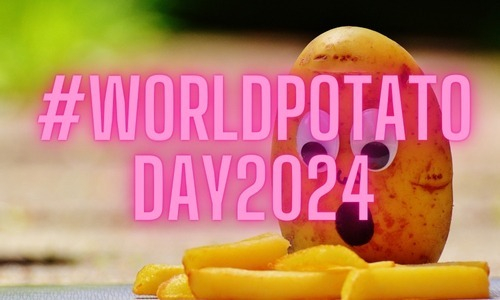In the heart of modern agriculture, potato farming stands as a cornerstone, offering sustenance, economic stability, and a rich history of cultivation. As we approach World Potato Day on May 30, 2024, it’s a fitting moment to reflect on the journey of this versatile crop and the strides made in its production.
Sustainable Practices: With environmental concerns at the forefront of agricultural discourse, sustainable practices have become paramount. According to recent studies by the Food and Agriculture Organization of the United Nations (FAO), implementing techniques such as precision agriculture, crop rotation, and integrated pest management can significantly reduce environmental impact while maintaining or even increasing yields. For instance, the adoption of precision irrigation systems has shown to optimize water usage, conserving this precious resource while ensuring optimal growth conditions for potatoes.
Technological Integration: The integration of technology has transformed potato farming, enhancing efficiency and productivity. One notable innovation is the utilization of drones equipped with multispectral imaging cameras, allowing farmers to monitor crop health with unprecedented accuracy. By analyzing data collected from these aerial surveys, farmers can detect early signs of stress, disease, or nutrient deficiencies, enabling targeted interventions and maximizing yields. Furthermore, advancements in machine learning algorithms enable predictive modeling for crop management, empowering farmers to make data-driven decisions in real-time.
Market Trends: Beyond the fields, market trends play a crucial role in shaping potato farming practices. The rise of consumer demand for organic and locally sourced produce has spurred a shift towards sustainable and transparent supply chains. According to market research conducted by Grand View Research, Inc., there is a growing preference for specialty potato varieties, driven by culinary diversity and nutritional awareness. This trend presents opportunities for farmers to diversify their offerings and cater to evolving consumer preferences.
In conclusion, the future of potato farming lies in innovation and sustainability. By embracing cutting-edge technologies and sustainable practices, farmers can optimize resource utilization, mitigate environmental impact, and meet the demands of a dynamic market landscape. As we commemorate World Potato Day, let us celebrate not only the humble spud but also the ingenuity and resilience of those who cultivate it.







